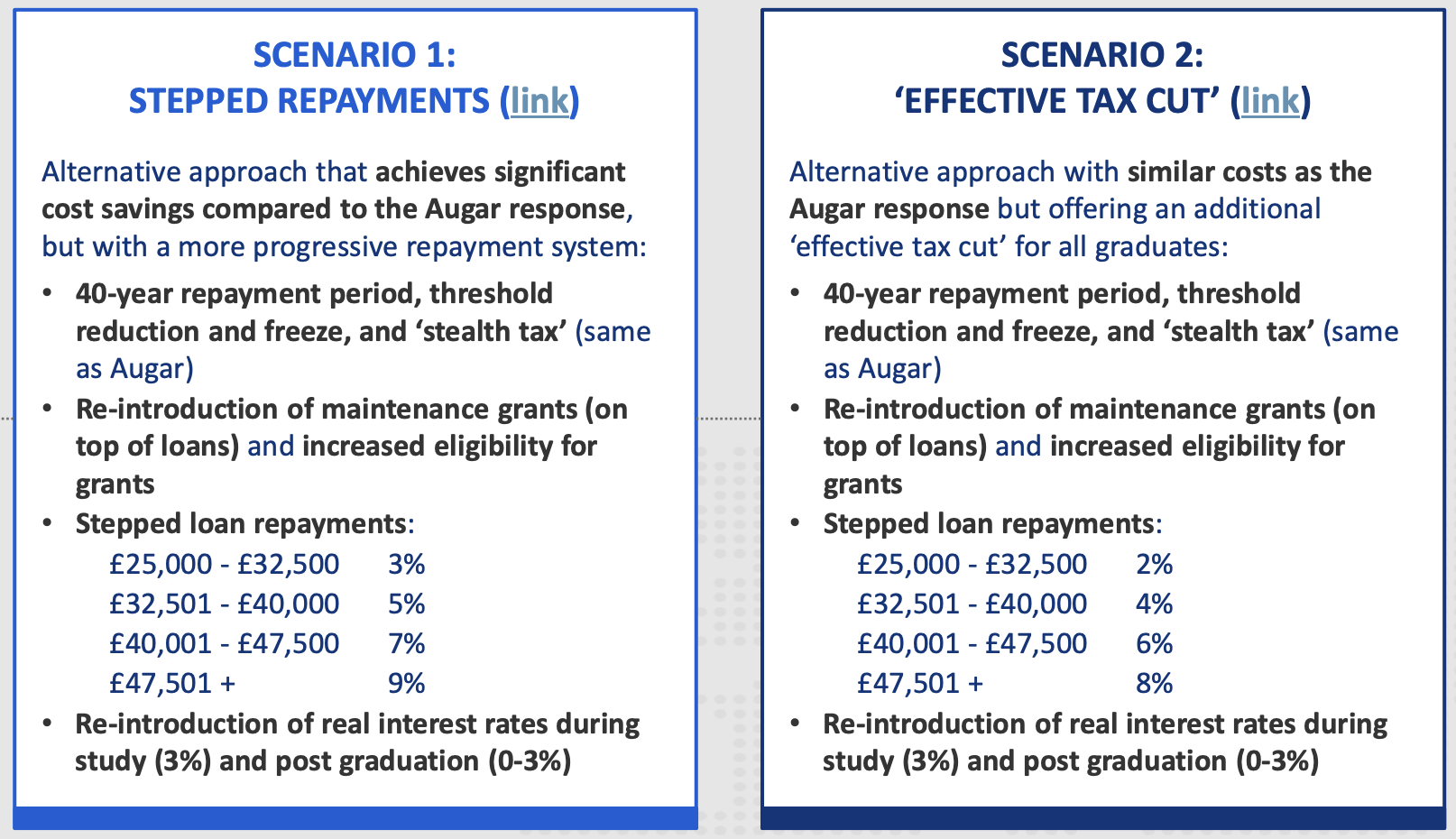Labour floats changes to student loans (and grants)
Jim is an Associate Editor (SUs) at Wonkhe
Tags
An op-ed from shadow education secretary Bridget Phillipson is accompanied by an article in which we learn that “a month-on-month tax cut for graduates” could be coming, addressing recent concerns about the impact of delayed contributions on other spending:
Higher loan repayments not only eat away at pay for young graduates just as they’re starting out on their working lives, but also put off older learners from accessing retraining or upskilling.
Phillipson refers to “modelling” that apparently shows how the government could reduce monthly repayments for “every single new graduate” – all “without adding a penny” to government borrowing or general taxation:
For young graduates this will give them breathing space at the start of their working lives and as they bring up families. This is a choice that the Tories could be making now to deliver a better, fairer system for our graduates and for our universities.
How is this possible? Step forward London Economics, whose modelling last month picked up little coverage but is referenced in the covering piece and appears to be at least one way of achieving this magic trick.
Both of the options in the modelling involve a stepped repayments system, with graduates paying much less of their salary in the early part of their career, building up to much more later:

As we’ve noted before here (and as Wales’ Jeremy Miles knows all too well), it’s the expensive interest rate cut that makes “Plan 5” so regressive – so removing it pays for middle earners to get the relief Phillipson describes and funds some maintenance grants:
In making the system fairer we must also recognise the pressure that the cost of living crisis is putting on students during their studies. Every time I visit our world-class universities, I meet students taking on extra hours or new part-time jobs to cope with rising bills. The Tories’ economic mismanagement is hurting students’ studies and their chances: more hours spent earning means less time spent learning. That’s affecting the grades students can achieve. And all too often it’s students from lower-income families, sometimes the first in their family to go to university, who are struggling the most.”
Insofar as there are some pretty straightforward choices within the envelope of spending, this all suggests a “frame it as a loan with usurious interest rates that we’ll reduce” option from the Tories, and “frame it as a tax unfair on new nurses that we’ll reduce” frame from Labour.
The good news on cost of living is that LE have modelled maintenance grants to sit on top of existing maintenance loan entitlements – with the maximum cash in pocket for students away from home and outside of London rising to £13,715.
That though, we should also note, is still just shy of £1,000 less than students from Wales will be getting this September (which as per Augar links the package to the National Living Wage) and the thresholds over which students start to get less than the max are still devastatingly low.
And if the sector thinks its been doing a good job on lobbying over the unit of resource, it may need to think again – the underpinning modelling here leaves fees at £9,250.
The real problem here is that whilst Phillipson is right that there are indeed choices to be made within the envelope, that envelope is getting much smaller this September. As Alison Wolf notes in “Johnson at 10”:
Rishi had a driving ambition to reduce the cost of universities to the taxpayer and an absolute determination to reduce the [proportion of the] loan book which was not paid back
The trouble is that it’s not actually very convenient for Labour to point out that regardless of the distribution of the debt, graduates will overall be paying much more for much less – because to point that out would mean Labour having to reintroduce some of the subsidy that’s about to be clawed back.
As a balloon float for a “clear blue water” holding position going into the next election, it may do. But it’s clearly some considerable distance from fixing the actual funding problems.

